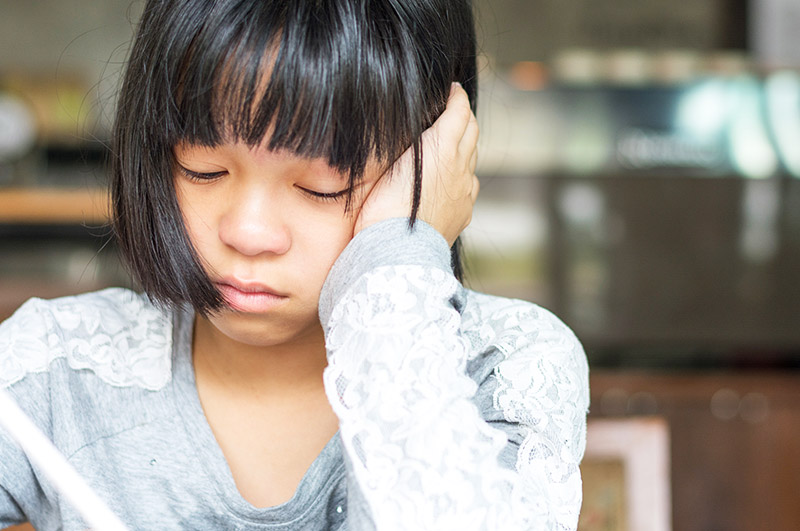Attention Deficit Hyperactivity Disorder (ADHD) and anxiety share some common symptoms. This makes differentiating between these two mental health disorders more challenging. With both of them, a child may demonstrate symptoms of inattention, distractibility, hyperactivity, restlessness, and at times even insomnia. It is even more challenging to know if a child also has ADHD if there has been past trauma. A child who has suffered trauma often is in a hyper alert state and may find it very difficult to relax and concentrate on day-to-day activities including school work.
So what is the best way to make the correct diagnosis? Here are some suggestions to consider if your child shows these symptoms.
1. Talk to your child. If you are witnessing concerning symptoms, sit down and discuss with your child about their current stressors and feelings. Is there something stressful going on in his/her life that makes it difficult for your child to focus on their school work? Does your child feel nervous in different settings? Is your child being bullied at school or elsewhere? How difficult is it for your child to pay attention in school? Make a list of your child’s answers and monitor when and where these symptoms occur.
2. Talk to other adults that interact with your child. It is very helpful to gain information from others. Your child’s teacher or daycare provider can give you insight as to what symptoms he/she is witnessing and how concerning they seem.
3. Get a professional opinion. It can be beneficial to have your child evaluated by a mental health professional who will take a detailed history and evaluate your child.
4. Consider psychological testing. If a mental health provider cannot clearly diagnose your child, he/she may refer your child for psychologist testing. In psychological testing, a detailed evaluation will be done, including interviewing you and your child, reviewing pertinent past medical, mental health, and school information, and administering various psychological tests to differentiate the diagnosis correctly.
5. Consider mental health treatment. With either of the diagnoses, counseling and medication management could help lessen the severity of symptoms. A correct diagnosis is essential so the counselor can teach your child the best strategies and techniques to decrease concerning symptoms. Medication management treatment will also vary depending on whether the diagnosis is ADHD or anxiety.
Medications used for the treatment of ADHD include stimulants, Clonidine or Guanfacine, Strattera, and sometimes the antidepressant Wellbutrin. Common stimulants include an amphetamine such as Adderall, Adderall XR, Vyvanse or a methylphenidate such as Concerta, Ritalin, Focalin, or Focalin XR. Common medications used for anxiety in children are the antidepressants or Buspirone. The most common antidepressants you will see used for children include Prozac, Zoloft, Lexapro, and Citalopram. Occasionally, Guanfacine or Clonidine may also be used, but the first line of treatment for anxiety is an antidepressant.
We know that seeing your child struggle at home and/or school can be very difficult to witness. The good news is that both of these disorders are very treatable. If you would like your child evaluated, please contact us at Water’s Edge Counseling & Healing Center at 952-898-5020.
– Pam Brown, APRN, PMHNP-BC, MPA, Family Psychiatric Mental Health Nurse Practitioner





